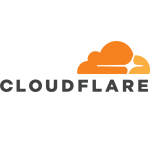What is our primary use case?
Typically, when we have a scenario where a client wants to migrate their resources to Azure, they might migrate their IaaS platforms, such as virtual machines; they might migrate their applications or their databases; they could also migrate into Kubernetes services. There are a variety of projects. I work for many types of customers where all these different scenarios are involved, including applications, app services, database as a service, IaaS by default, and Kubernetes.
How has it helped my organization?
With a project that I recently completed for one of our customers, the requirement was around their bidding application on-prem, utilizing different cognitive services and AI modules on Azure. They wanted to containerize this entire application with AKS, Azure Kubernetes Services. They did so, and Security Center was integrated with this entire AKS system. What Security Center provided us with was a solution for how we could better secure this entire environment. It provided some recommendations on pod security and how the pods do not need to communicate with each other. It recommended isolating these pods for better security, so that even if a certain user got access to a pod, or a certain threat was detected for one of the pods, we wouldn't have to worry about the entire system being compromised. By implementing the recommendation, if a pod is compromised, only that pod is affected and can be destroyed anytime by the AKS system.
Another recommendation was for enabling some edge layer WAF services, by leveraging a Microsoft out-of-the-box solution like Front Door. Security Center said, "Okay, now that the application is being accessed over the public internet, it is not as secure as it could be." An edge solution, like an application delivery controller such as a WAF or a CDN service was another option. It could be anything that sits at the edge and manages the traffic so that only authorized access is allowed within the network. Security Center recommended Front Door, or we could leverage other solutions like Cloudflare, or a vendor-specific solution like F5. We could then make sure that any Layer 7 security is handled at the edge and doesn't affect the application inside. SSL offloading is taken care of at the edge. Any region-specific blocking is also taken care of at the edge. If an application is only accessed in the U.S., we can block locations at scale with this solution. That is how Security Center provided us with some recommendations for better securing the environment.
Another way that Security Center can help is that it can benchmark the infrastructure in terms of compliance. Compliance-based infrastructure is one of the norms nowadays. If an application is health-based or it's a Fintech-based application, certain standards like HIPAA, NIST, or PCI need to be followed by default. Auditors or compliance teams used to run through a manual checklist to make sure that the environment was secure. But with Security Center, we can do it via an automated layer, introducing regulatory compliance policies. Security Center performs scanning of the entire environment, in regard to the policies, in real time. Using the example of the bidding system, it's a Fintech environment and, while having NIST is not mandatory, we could enable a benchmark run-through, to make sure the infrastructure is NIST-compliant.
With Security Center, we applied policies that align with these types of compliance. Security Center takes these policies and runs through the infrastructure to see what the gaps are and provides us with a report on what is compliant on the infrastructure and what is non-compliant. We can fix those non-compliant parts.
What is most valuable?
For any type of service, I would recommend the go-to solution for security on Azure is Security Center. The advantage is, firstly, is that it has seamless integration with any of the services I mentioned, on Azure, such as IaaS platforms, virtual machines, applications, or databases, because it's an in-house product from Microsoft within the Azure ecosystem. It has seamless integration with their Log Analytics workspaces, and it also provides some insights into what can be a better solution when it comes to securing their environment.
When it comes to improving the security posture, whenever we have a small project for a customer where they want to migrate their resources into Azure, once the resources are migrated, such as the ones I noted above, we go ahead and integrate Security Center in various ways. One of those ways is to use an agent that can be installed on virtual machines so that we can extensively monitor security alerts or threats that happen on the device.
But for platforms as a service, we can't have an agent installed, so it integrates with the Log Analytics workspace. For any PaaS services, or a database as a service, or data lakes, we take their Log Analytics workspace and integrate it with Security Center. Once we have integrated it, Security Center discovers the resources, determines what the different configurations are, and provides us with some recommendations for the best practices that Microsoft suggests.
For example, if the Security Center agent is installed on a virtual machine and it scans the environment and identifies that the access to this VM is public and also doesn't have any MFA, it will recommend that blocking public access is one of the best practices to make sure that only safe access is allowed. Along with that, it can also provide us with some insights about enabling MFA solutions that can provide an additional security layer. Those are examples of things that Security Center can recommend for providing a more secure infrastructure
What needs improvement?
There is a slight gap between the real-time monitoring and real-time alerts. While Security Center has the ability to detect sophisticated attacks or understand potential threats, I feel that if the response time could be improved, that would be a good sign.
In addition, when it provides recommendations, those recommendations have a standard structure. But not all the recommendations work for a given environment. For example, if a customer is already using a third-party MFA solution, Microsoft doesn't understand that, because Microsoft looks into its own MFA and, if not, it will provide a recommendation like, "MFA is suggested as a way to improve." But there are already some great solutions out there like Okta or Duo, multi-factor authentication services. If a customer is already using Okta as an SSO in its entire environment, they will want to continue with it. But Security Center doesn't understand that and keeps making recommendations. It would help if it let us resolve a recommendation, even if it is not implemented.
Security Center provides what it calls secure score. This secure score is dependent on the recommendations. It tells you that if you resolve this recommendation, your secure score will be improved. In the case where a client is already using MFA, but the particular recommendation is not resolved, there is no improvement in the secure score. There is a huge mismatch in terms of recommendations and the alignment of secure score. MFA is just one small example, but there are many recommendations that depend on the client environment. There is room for improvement here and it would help a lot.
For how long have I used the solution?
I'm a network and security architect for a Microsoft Gold partner. I have been extensively using Azure for five years and have been involved in multiple security and network projects. I have been using Security Center, specifically, for more than three years on Azure, applying recommendations and working on integrations with other services, etc.
What do I think about the stability of the solution?
The performance is pretty crisp. Because it is a platform service, we don't have to worry about the availability or response time. It's all managed via Microsoft. The performance is good for now, but it can be improved. It could be more real-time. There are many things that Security Center does in the background, so that may make the response time a bit slow. If we apply certain policies, it will run through the entire environment and give us a report after about 30 to 45 minutes. That layer could be improved.
What do I think about the scalability of the solution?
This is a platform service and Microsoft has scalability under its control. It can scale to all of Azure.
How are customer service and technical support?
As a Microsoft Gold partner, most of the time we work directly with the engineering team or with the Microsoft sales team. Because we are working day-in and day-out with Security Center, we are well aware of its issues, capabilities, features, and the depth of its tools. The basic, level-one or level-two support team just follow a standard.
But there has been a huge improvement in terms of Microsoft support and they provide some really good support for Security Center.
How was the initial setup?
The initial setup is very straightforward. There's nothing complex about it.
Implementation generally doesn't take a huge amount of time. Because Security Center is a service, the agents need to be installed on a virtual machine or servers. If it's an IaaS application or platform services, the log analytics need to be integrated. In an environment with about 30 or 50 servers, we could run the script and complete the onboarding of the servers into Security Center within a day, and the same is true for platform services.
But it's not just about onboarding it because Security Center also provides some recommendations, and we work on those.
I lead a team of four people who work specifically on Security Center. There are other sections of Azure Security that they work on, such as Azure Sentinel, Azure ADP, Microsoft 365 security and compliance for our portals. But for these four people, about 25 to 30 percent of their roles involves managing Security Center.
What was our ROI?
The return on investment is pretty great in terms of the feature set that Security Center provides. There are so many solutions out there that can do similar things, but at the same time, they do not have such seamless integration with other services on Azure. The return of investment is in the ease of management and the great visibility.
What's my experience with pricing, setup cost, and licensing?
Pricing and licensing is a standard process. It's not as complicated as other Microsoft licensing solutions. Security Center charges $15 per resource for any workload that you onboard into it. They charge per VM or per data-base server or per application. It's not like Microsoft 365 licensing, where there are levels like E3 and E5. Security Center is pretty straightforward. With Security Center, there are no other fees in addition to the standard licensing fees.
Which other solutions did I evaluate?
We have other, third-party vendor solutions, but Security Center provides that seamless integration, along with some insights that other platform services do not. There aren't a lot of other vendors out there that can integrate with Azure platform services. It's the only solution that we recommend.
Other solutions include Qualys, Rapid7, Tenable, and Nessus. As system integrators, we generally recommend Security Center. But if a client has already made a huge investment in Tenable or Qualys, they will want to continue with that. If a client does switch, they will see the advantages of all the integrations and services that can all work together. They will have a single plane of control.
The seamless integration is one of the key benefits. It integrates well with the whole Azure ecosystem. A second advantage is not having to worry if Security Center will be able to scale. A third advantage is that it is an all-in-one service. You don't have to have multiple services for threat protection, for endpoint protection, for recommendations, and for compliance. This is one tool that can do a lot.
In terms of the cons of Security Center, there are a lot of things. Vulnerability management is available, but vulnerability assessment is not available within Security Center. That is a huge gap. As of now, Security Center relies on third-party tools in this area and we have to integrate it with them. There is also the lack of custom recommendations for the environment. That is a feature that would be helpful.
When it comes to endpoint solutions, Microsoft ATP is available, but some of our clients already have a solution such as CrowdStrike.
What other advice do I have?
My advice is to go with Security Center. It's a really good tool and provides some good recommendations for the environment. Other tools can provide recommendations, but then we have to do them manually. Security Center does them automatically. That's one of the advantages that stands out compared to other tools. For anyone who asks, "Why Security Center?" I would tell them that if all their resources are being deployed, or all their applications are being hosted on Azure, this is the only solution, the best solution, out there.
I don't think there is much effect on end-user experience here, because whenever you talk about Security Center, the agents or tools are applicable to the underlying infrastructure rather than the end-user. For example, an application is hosted on a server or, for platform services, it's being integrated with these services. While a user is accessing these applications, Security Center just scans the data to understand what the incoming traffic is like. It provides intelligence reports such as where the traffic is coming from and what kind of data is being accessed for the end-user. Apart from that, it doesn't affect anything for the end-user.
Disclosure: My company has a business relationship with this vendor other than being a customer. Partner

















